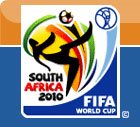Just how damaging are service delivery protests for 2010?
When Jeremy Maggs interviewed International Marketing Council (IMC) chair Anitha Soni earlier this week as to just how much damage the recent service delivery protests have caused to South Africa's brand image, in view of the impending 2010 FIFA World Cup, deja vu of previous world cup hosts kept flashing before my eyes - it appears that the months running up to the big event tend to be beset by problems and challenges alike, ever since the 1990 World Cup held in Italy.
Finagle's Law afflicting world cup preparations
Known as Finagle's Law of Dynamic Negatives, this phenomenon states that “anything that can go wrong, will - at the worst possible moment”. The previous five FIFA World Cup hosts bear testimony to Finagle's Law:
- Italy 1990: Reported the New York Times on 30 March 1990, less than three months before kickoff: “There have been endless, and well-founded, complaints about appalling cost overruns, about cup-related deaths, about yawning construction sites and roadwork delays that in Rome, for example, have traffic backed up some mornings halfway to Florence.”
Labor unions denounced the world cup as having turned into ''a blood bath'' because of 16 deaths on construction sites, and at the Milan stadium, a new architectural style altered temperatures on the field, turning it into a muddy mess that commentators termed ''the potato patch.''
- USA 1994: The choice of the US itself as host for the World Cup Finals was greeted with a combination of disbelief, hoots of derision, and scepticism among journalists, commentators, and professionals, both within and beyond the US. Even at the time of the Final Draw (held six months before kickoff), analysts were predicting a low turnout and general apathy.
Wrote USA Today commentator Tom Weir: “The World Cup draw is Sunday and admit it, you don't care. And no matter how much this event gets crammed down your throat... you still won't care. But don't feel guilty about it. There's a good reason why you don't care about soccer, even if it is the national passion in Cameroon, Uruguay, and Madagascar. It's because you are an American, and hating soccer is more American than mom's apple pie, driving a pickup or spending Saturday afternoon channel-surfing with the remote control.”
- France 1998: Prior to the 1998 FIFA World Cup, the host nation France was riddled by xenophobia and labeled “the most racially troubled country in Europe”. Even the French team, which was composed of many players from immigrant backgrounds, was subject to verbal attacks from right-wing politicians.
National Front politician Jean-Marie Le Pen protested in 1998 that the Black, Blanc, Beur team that won the world cup did not look sufficiently French. At the same time, the French press was attacking the team manager Aimé Jacquet, calling his methods "Paleolithic" and claiming that the team had no hope for the upcoming world cup.
And, to add insult to injury, with just 10 days to go to kickoff, pilots of the national airline Air France went on strike, grounding three-quarters of Air France flights to a halt for a 10-day period, only to resume their duties a few hours before the first ball was kicked.
- Korea 2002: In the run-up to the 2002 World Cup, co-host South Korea saw a host of violent labour unrest, as the Korean economy was reeling from the economic crisis of the late 1990s and the signing of the IMF bailout had been dubbed the “2nd National Shame Day”.
Recalls Korean economist Yoon Sung Choi: “Unemployment rates skyrocketed, the number of homeless increased, the middle-class were severely weakened, and overall morale in society was extremely low.”
Pictures of Korean workers suffering “brutal and vicious attacks from police while protesting against mass sackings” made global headlines, amid news that financial mismanagement, based on huge illegal overseas loans by Korea's second biggest corporate Daewoo, led to the mass sackings and remaining workers being forced to accept 30% cuts to their wages.
- Germany 2006: Unbeknown to many, just five months before the world cup, Germany was a deeply disturbed people - a nation so plagued by self doubt that it was diagnosed by its own president as entering ‘collective depression'. With unemployment at a record 5 million plus, the national psyche was so down trodden that the media spoke about ‘Konsum-Verweigerung' - Germans refusing to invest in property and automobiles.
Worse of all, the German football team had crashed out of the first round of the European championship, the Bundesliga was riddled by a match-fixing scandal involving many a player and manager, and xenophobia had gripped certain areas of Eastern Germany such that politicians were advising people of colour against entering so-called ‘No-Go-Zones'.
Even the Olympics are giving credence to Finagle's Law, most recently the 2010 Winter edition held at Vancouver, when - in the words of one Canadian commentator - “everything that could go wrong, went wrong” in the first week of the event. Yet, the games turned out to be a catalyst for unparalleled civic pride and collective self-assurance and were declared “nation-building at its best” by the IOC.
As the saying goes, the proof is in the pudding, not the starter - as long as the visuals emanating from the 31 days of the 2010 FIFA World Cup convey consistently positive messaging to the global audiences, chances are good that FIFA president Sepp Blatter will be able to reiterate his verdict made at the conclusion of the 2006 event held in Germany, when he declared: “This has been the best world cup ever. Never has an event been delivered in such a global and emotional manner.”
About Dr Nikolaus Eberl
Dr Nikolaus Eberl is the author of
BrandOvation™: How Germany won the World Cup of Nation Branding and
The Hero's Journey: Building a Nation of World Champions. He headed the Net Promoter Scorecard research project on SA's destination branding success story during the 2010 FIFA World Cup, co-authored the World Cup Brand Ambassador Program 'Welcome 2010' and was chairperson of the inaugural 2010 FAN World Cup. Email
moc.noitavodnarb@sualokin and follow
@nikolauseberl.






















































